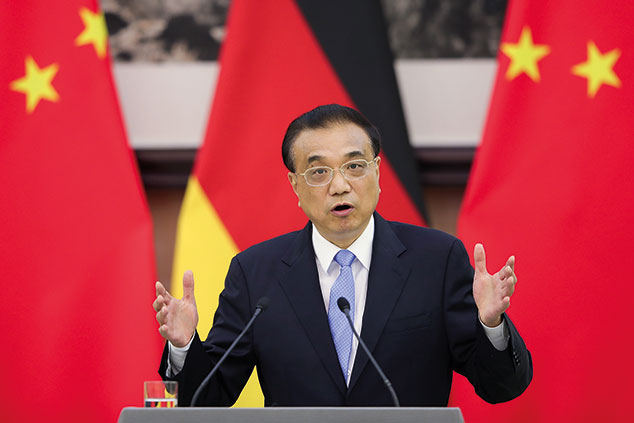
But will they do so this time?
In recent months China has adopted a series of policies to prop up growth, including cuts to bank reserve requirements and increased fiscal spending, say Gabriel Wildau and Emma Dunkley in the Financial Times. But the scale of stimuli “has so far been modest”.
Beijing appears determined not to resort to strong monetary stimulus, but instead take “targeted policy steps to support private companies and smaller businesses”, says Reuters. The plan is to step up efforts on reducing taxes, fees and market trading costs. Premier Li Keqiang said China would continue “to open up its financial markets”. All very well, but hardly the sort of broad-based jolt we have seen in the past. The trouble is that the authorities are walking a tightrope, says Pete Sweeney on Breakingviews. They need to “keep credit flowing to support growth”, but at the same time they are wary of adding to the country’s huge debt pile. Indeed, the country is trying to reduce reliance on credit. The “debt hangover” from previous spending and building sprees dilutes the impact of any further credit, as well as limiting the scope for it.
A different tack
Another difference between current-stimulus policies and previous ones is what they focus on. Earlier stimulus was “investment-led, targeting the construction of factories, housing and infrastructure”, note Wildau and Dunkley. This time, there is a greater emphasis on consumption, which accounted for 78% of GDP growth through the first nine months of this year, compared with an average of only 55% between 2008 to 2017. Income-tax reductions will come into force in 2019, while a levy on car purchases may be halved.
China’s small measures could still bolster global growth, but the effect would probably be felt less in sectors traditionally closest to China, such as energy and metals, and more in sectors serving consumer demand, such as luxury goods and agricultural commodities. On balance, however, investors shouldn’t count on Beijing giving global stocks a major boost. “A return to Beijing’s old stimulus playbook may put a floor under falling markets”, concludes Sweeney. But there is “little else for investors to celebrate”.